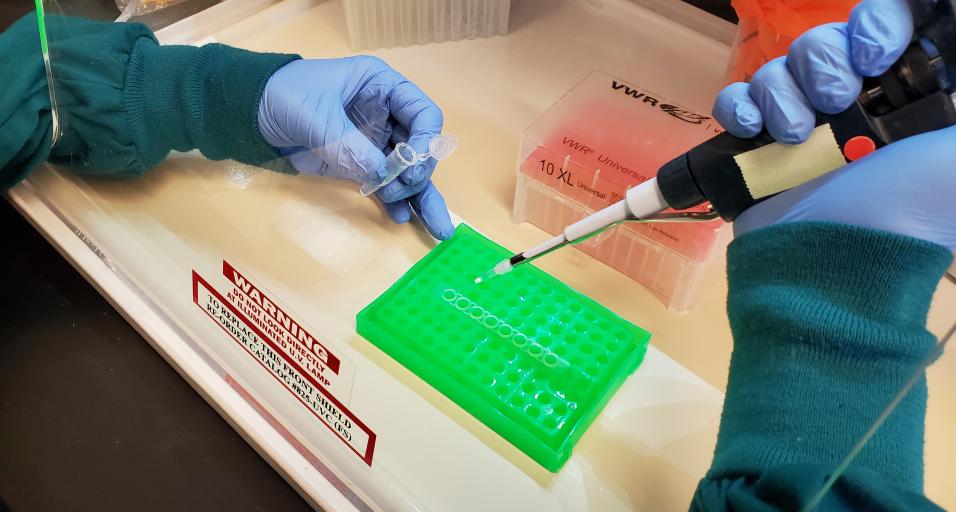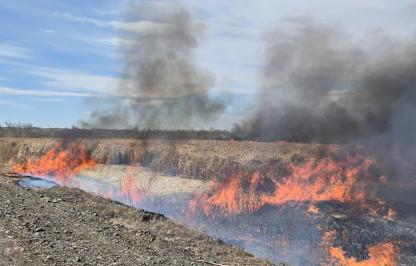Wyoming wildlife managers have a new tool to monitor the presence of Rabbit Hemorrhagic Disease Virus 2 (RHDV2), a disease that can be fatal in wild and domestic rabbits, hares and pikas. The Wyoming Game and Fish Department’s Wildlife Health Laboratory is now equipped to perform a rapid DNA test that reveals the presence of RHDV2 in tissue samples. The ability to quickly test samples enables Game and Fish and the Wyoming State Veterinarian to learn more about the spread of the disease.
Hank Edwards, Game and Fish Wildlife Health Laboratory supervisor, said that performing the test in-house is an important step for monitoring Wyoming’s rabbit populations health.
“Before, each rabbit sample had to be sent out for testing, which took up to three days to hear the results. Now, the Game and Fish Wildlife Health Laboratory can process results in a couple hours,” said Edwards.
The timeliness is a boost to an ongoing effort to test rabbits submitted by the public. Beginning in July, Game and Fish asked people to keep a lookout for dead rabbits in their yards, rural property and other outdoor areas and call Game and Fish if finding a carcass. As a result of the public’s diligence, the department has confirmed the presence of the disease in Laramie and Albany counties.
However, more samples are needed throughout every county to monitor the disease. The first indication of a possible RHDV2 infection in an area is a noticeable decrease in the wild rabbit population, as well as dead rabbits without an obvious cause of death.
“The public helped tremendously by calling in reports of dead rabbits. As you spend more time outside in the warmer springtime weather, continue to keep watch for and report carcasses,” Edwards said.
All of Wyoming’s rabbits, hares and pikas are susceptible — that includes cottontail rabbits, jack rabbits and pygmy rabbits. An estimated 35-50% of infected wild rabbits succumb to the disease. Domestic rabbits are also at risk; however, other domestic pets and livestock are not. RHDV2 has also been reported in Montana, Utah, Colorado, Arizona, Nevada, New Mexico, Texas, California, Washington, Florida and New York.
RHDV2 does not pose a threat to humans, but rabbits carry other diseases, like tularemia and plague, which can be transmissible to humans. The public is advised not to touch or pick up any dead wild rabbits. Rather, note the location and call the Game and Fish Wildlife Health Lab at (307) 745-5865 or the nearest Game and Fish regional office. Game and Fish personnel will evaluate the situation and make plans to collect the rabbit.
NOTE ON DOMESTIC RABBITS: RHDV2 is a reportable disease in the United States and Wyoming. Anyone suspecting the disease in domestic rabbits is required to report to the State Veterinarian and USDA APHIS immediately. Veterinarians should contact USDA-APHIS or the Wyoming State Veterinarian’s office at (307) 857-4140 or (307) 777-6440.
New rapid test capability will help monitor fatal rabbit disease
Sara DiRienzo (307-777-4540)




